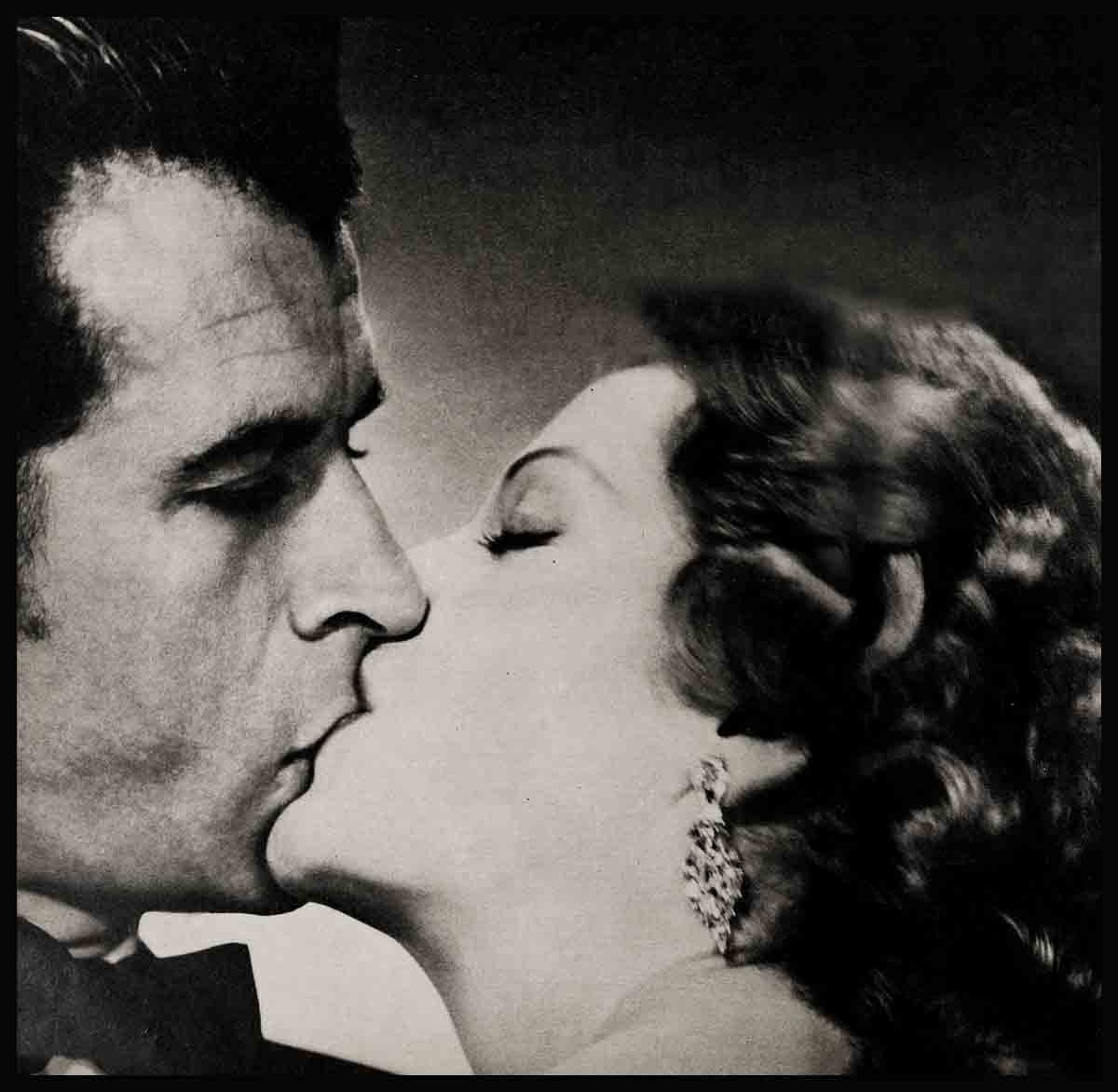
DAHL-That’s All!—Fernando Lamas & Arlene Dahl
Fernando Lamas has showed up the prophets.
The wise guys who thought they knew his kind kept saying for months, “He’ll never marry Arlene Dahl. He’s just using her to keep his name alive, to get jobs. He knows that marriage would ruin his reputation as the great Latin lover.”
But Fernando did marry Arlene.
He is not the shrewd, conniving, razor-sharp cookie he has been made out to be. He is so forthright that no one could fathom his directness. Therefore he was accused of the most devious motives.
He was blamed for breaking Lana Turner’s heart. But Lana almost cost him his career by refusing to star with him in Latin Lovers, a picture written specifically for the two of them.
Worse yet, the Argentine actor was accused of the most ungentlemanly conduct. It was said in confidence (so that most of the world could hear it) that Fernando had “roughed up” Lana because she and Lex Barker had danced too cozily at a Marion Davies party.
Fernando was described as a violent, jealous, uncontrollable hothead.
Then it turned out that Lex Barker was crazy about Lana. He pleaded with the actress all over Europe to marry him and finally broke down her resistance in Italy last year. In retrospect, Fernando’s annoyance doesn’t seem odd.
Fernando Lamas is experienced in the ways of love. He understands women and he is extremely practical about them. And he understands marriage. He was not in any great hurry to marry Arlene Dahl, but when Arlene’s divorce. from Lex Barker became final on October 15, she was anxious to get married.
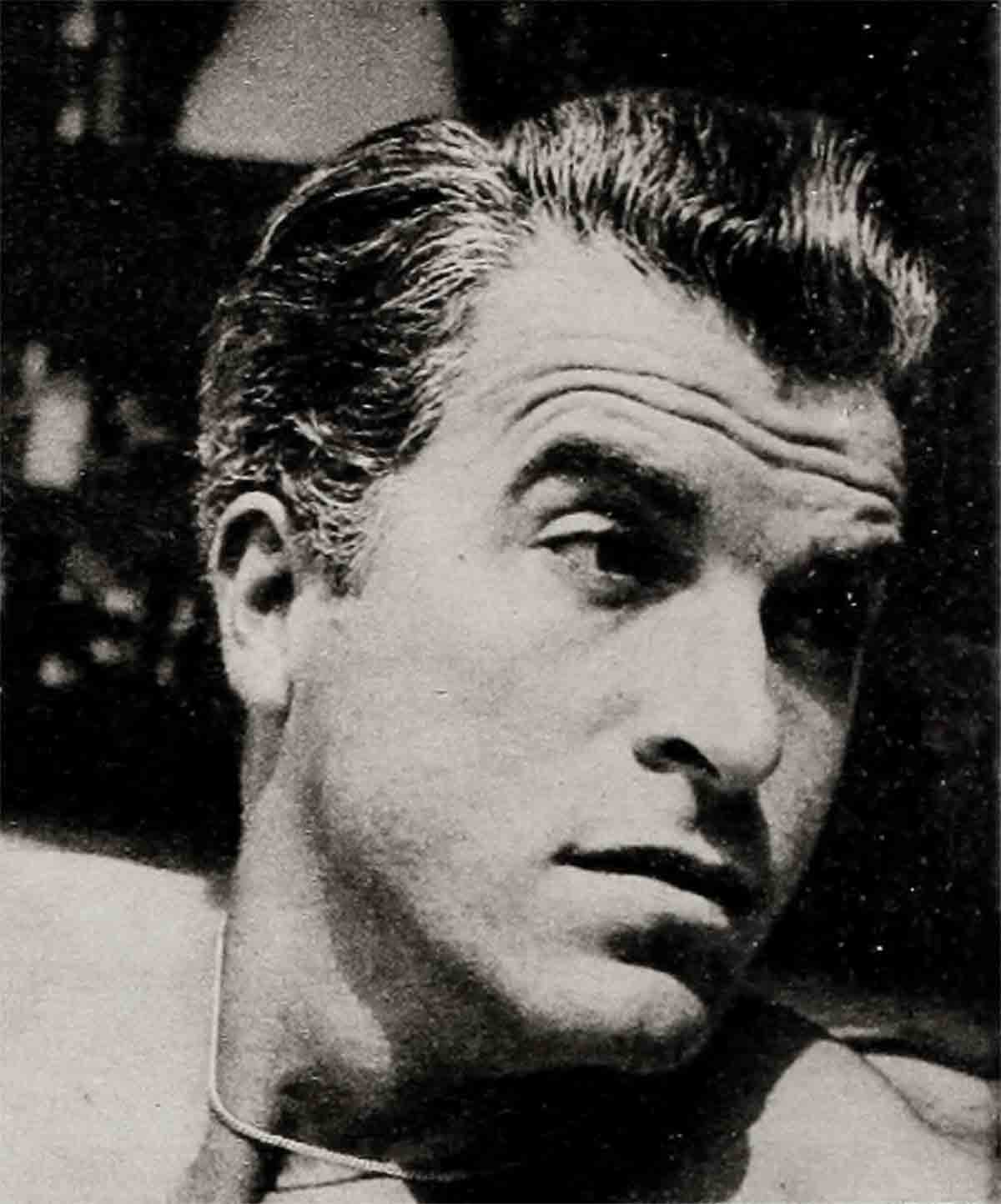
Arlene was waiting for Fernando to propose. She had told practically every interviewer, “Fernando is really the only man I’ve ever loved. I can’t tell you what joy I’ve known playing opposite him in these last few pictures.”
Arlene had been considered cold and aloof, so this frank confession of love and passion was a surprise to everybody but Lamas. He kept saying, “I don’t understand how Arlene gets this reputation. She’s very warm-hearted and responsive to the right man.”
Fernando was not boasting, although many girls thought he was. He was merely being Fernando, outspoken and charming.
One time when the tide of rumor was mounting against him, Fernando was asked if his intentions toward Arlene were honorable.
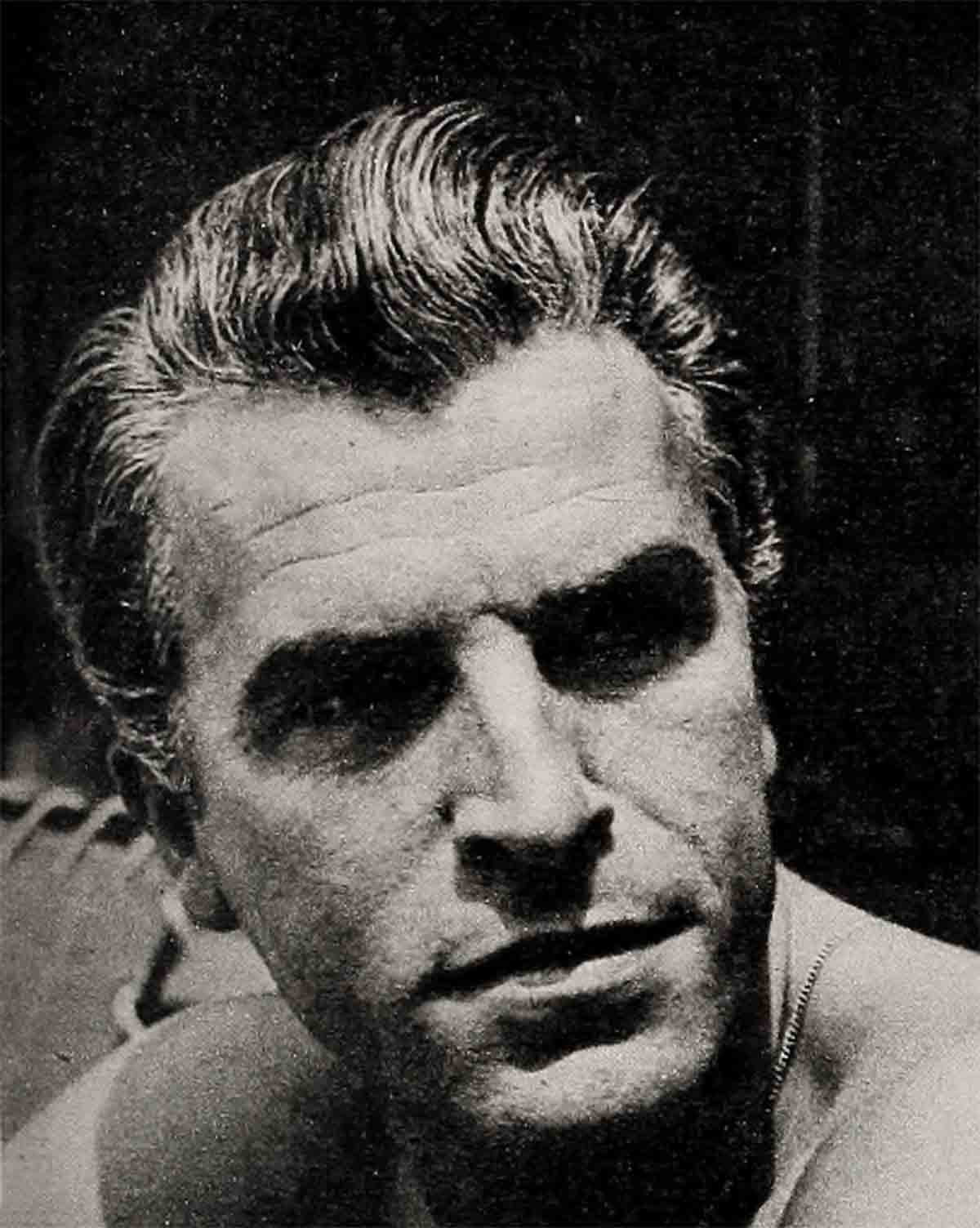
“Deep in your heart, do you have any intention of marrying this girl? Did you ever have any intention of marrying Lana—or any girl, for that matter?”
Lamas smiled. “About Lana,” he said, “that’s finished so we will not discuss it. About Arlene—she has done very much for me, and I would love to make her mine. But what is the sense of rushing into marriage? I am not a little boy who cannot control his emotions.
“I am not going with Arlene to pass the time of day. She is everything a man wants in a woman. I realize that. But I will not rush into marriage. I did that when I was very young and I lived to regret it. And I will not do it again. Probably we will get married, but in due time.”
Two weeks later, Fernando was in New York watching Arlene play Roxanna in Cyrano de Bergerac at the City Center. But he refused to make his intentions public.
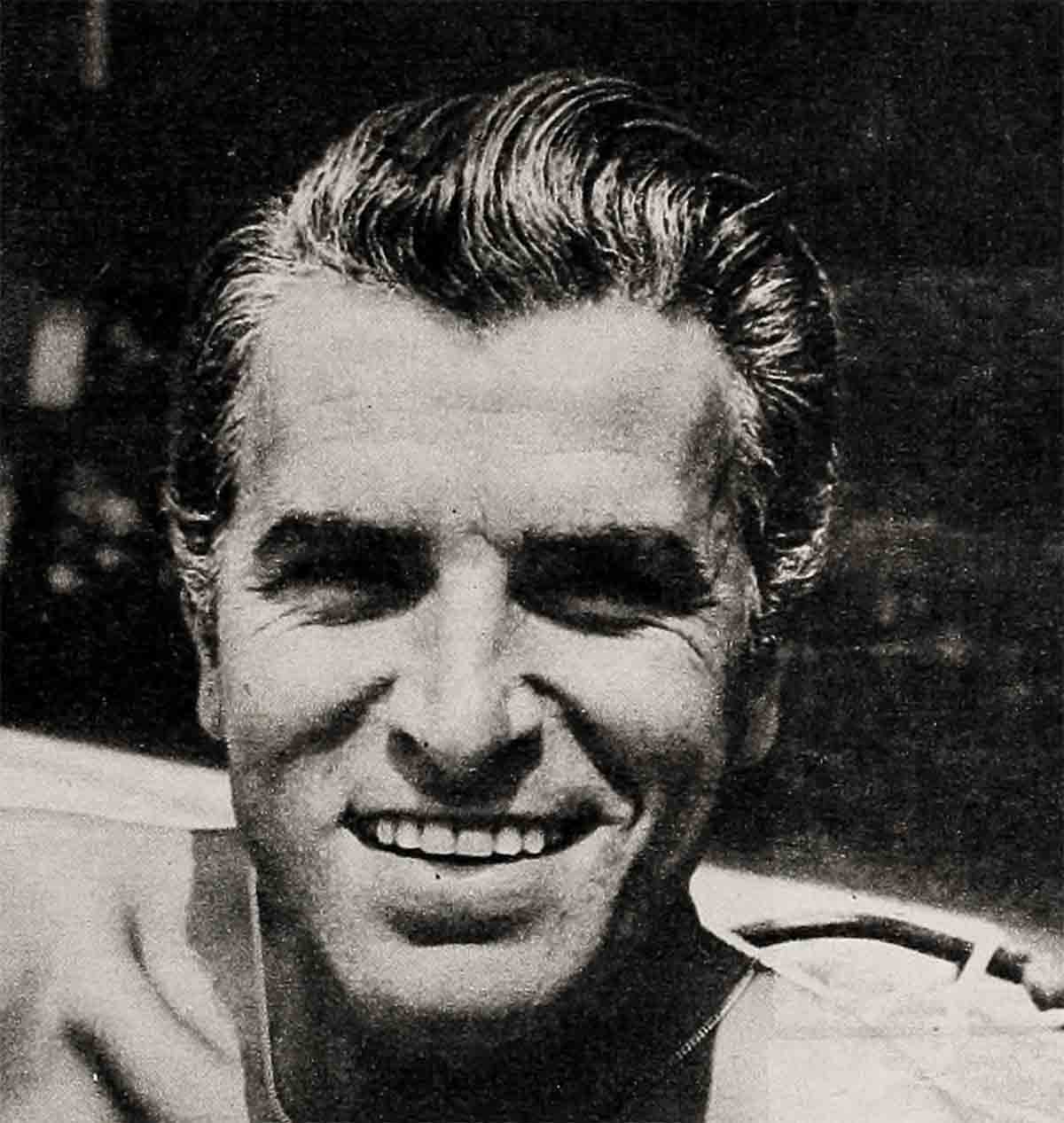
Arlene, of course, won’t admit it now, but she was hurt, deeply hurt. She’d gone overboard for Lamas, she had committed herself, she’d told the world that he was everything she had dreamed about, that despite her previous marriage to Lex Barker, Fernando was the only love in her life. She had bared her heart and mind, had given tongue to her innermost thoughts and saw them in the cold light of print. Now she began to wonder and doubt.
Suppose Fernando didn’t want to marry her? Suppose she had made a bitter mistake? Suppose Fernando had been using her?
A proposal from Fernando would have destroyed these doubts at once. But the proposal didn’t come.
Fernando was having trouble of his own. His second wife, Lydia, wanted the Nevada divorce decree and financial settlement validated in the California courts. His back was giving him trouble. There was the question of whether or not MGM would grant him the release he was requesting. Fernando was hardly in the mood for marriage.
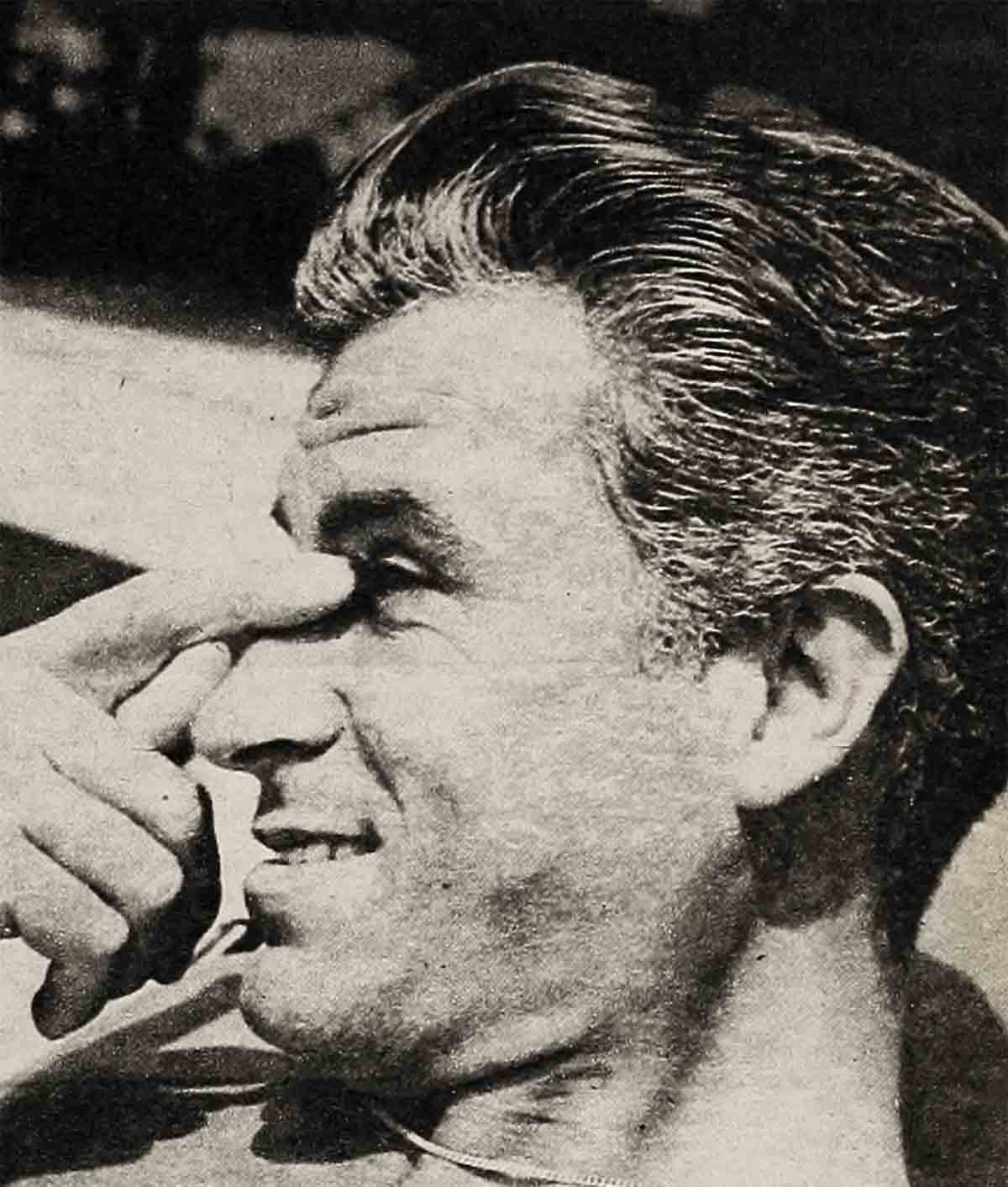
If he doesn’t want to marry me, Arlene thought, I don’t want to marry him. They broke off their relationship without rancor or recrimination.
Fernando went down to Palm Springs. He began to date Mary Castle.
Arlene, admitting to no one that her heart was breaking, went about her many businesses: designing lingerie, writing her beauty column for the Chicago Tribune, discussing a new picture (A Woman’s World) with Twentieth Century-Fox.
All this time the wise guys had Fernando written off as an “angle boy,” a self-seeking, ruthless woman-user.
“He made a few pictures with Dahl,” they said, “and then he kissed her off. Who will be the next victim?”
They spoke knowingly, but few people in this country know much about Lamas. This is his own story:
“I was born in Vincente Lopez, a suburb outside of Buenos Aires on January 9, 1916. My father died of double pneumonia when I was one. When I was four my mother died of peritonitis.
“I lived with my two grandmothers, one week with one, the next week with the other. They finally took the case to court to determine custody rights. The magistrate decided that I was to live with my grandmother Lamas from Monday to Friday so that I could attend the good city schools in Buenos Aires. On the weekends I was to live with my grandmother Fernandez in the country.
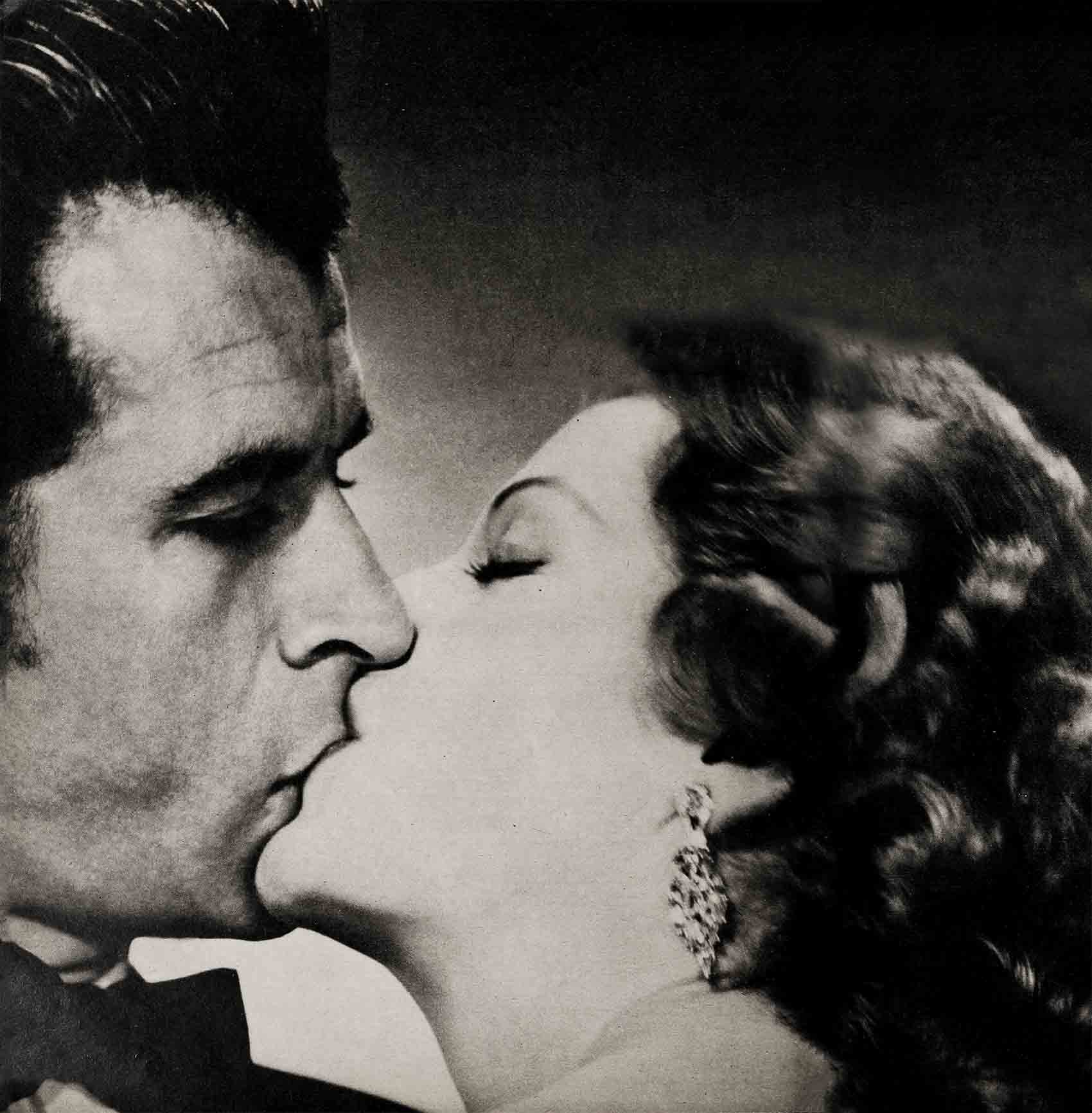
“I had no mother, no father, no sisters or brothers. Ever since I can remember I have had to work out my own problems, solve them by myself. As a boy I made my own decisions. I think this gave me some sort of self-reliance.
“Things have not been easy for me. I have had to fight for what little success I’ve had. No one has helped me much.
“I got into acting in the usual way, I guess. School plays—things like that. I finished high school when I was fifteen. I had an uncle who was a stage actor, José Lamas. I went to him and told him I wanted to become an actor. He warned me that I was being crazy but he got me a job in a play, Navidad des Pobres. I had five lines, a bit. When I was eighteen or nineteen I got jobs on the radio, Radio Mitri.
“I swam a lot. One year I won the South American free style championship.
“I never went to college although at one point I thought I’d study law. I was twenty-four when I got my first lead in a play, Evacion. . . . I’ve been lucky with women. They’ve always been kind to me, and I have tried to be kind to them, to give them all my attention.
“I think the first girl I ever felt romantic about was Estella Diaz, a fiery Spanish dancer from Asturias. I fell in love after seeing her perform at the Avenida. I think I was twenty-one at the time, just a kid. It probably wasn’t love, just puppy love. I went backstage and told her she was great. I took her out to dinner and we went steadily for almost nine months.
“My first wife was Azuzena Mus, her nickname was Perla. She was a movie actress and singer. She was nineteen. I was twenty-three. We went together six months, not nearly enough time. We were in a hurry to be married.
“Times were hard. There is a Spanish saying, ‘When poverty comes in the front door, love flies out the window.’
“It was terrible being poor. I don’t ever want to be poor again. I will drive a taxi, work in an aircraft plant, do anything but be poor. When you have plenty of love and no money, somehow the love begins to disappear. Anyway, there is no divorce allowed in Argentina, so we went across the river to Montevideo and got a divorce there. That was the end of the marriage.
“Then I met Lydia at the Hindu Golf Club outside of Buenos Aires. I was having lunch with Eduardo Schlieffer, an importer. Lydia was working as a secretary. Schlieffer introduced us. She was very attractive. We went together for six months; then we were married in a civil ceremony attended by her family.
“At the time I was all alone in the world, my grandparents having died. Alexandra, my daughter, was born on April 14, 1947. And there is another old Spanish saying, ‘Sometimes children are born with a loaf of bread under their arms.’ It means they bring good luck.
“Alexandra brought good luck into our lives. A month after she was born, I got my first break in the movies. A friend introduced me to Manuel Romero, a director. He asked me to come out for a screen test. I was signed. Then when Republic Pictures came to Buenos Aires to shoot The Avenger, I was signed for the Spanish version and John Carroll for the English version. Then Republic brought me to the States.”
John Carroll’s wife at that time was Lucille Rymer, a talent executive at MGM. She recommended Fernando to her studio. Fernando sang for L. B. Mayer and was put under contract.
His American film debut was made in Rich, Young And Pretty, and after further experience in The Law And The Lady, he was assigned the plum role opposite Lana Turner in The Merry Widow.
There is no point in going over the Lamas-Turner love affair again. Everyone knows that Lex Barker wound up with Turner and Fernando wound up with Arlene Dahl.
Lex rushed Lana into a marriage which is apparently very successful. But Fernando approached marriage to Arlene with great caution. He made triply sure that life for him was inpossible without her.
During their estrangement, Fernando tried not to think of Arlene. But she was too much in his heart and mind.
Finally, he arranged to meet her in the lobby of the Beverly Hills Hotel, and he asked her out for the next day. It seemed to both of them that they had never been separated. They had never fallen out of love with each other, of course.
And this time, Arlene received the marriage proposal she had been expecting for more than a year. Arlene said yes.
“I’ll marry you,” she said, “but it’s got to be a double-ring ceremony.”
Lamas laughed and took the beautiful redhead in his arms.
“Anything you say, darling. Anything you say.”
THE END
—BY IMOGENE COLLINS
It is a quote. MODERN SCREEN MAGAZINE SEPTEMBER 1954





No Comments